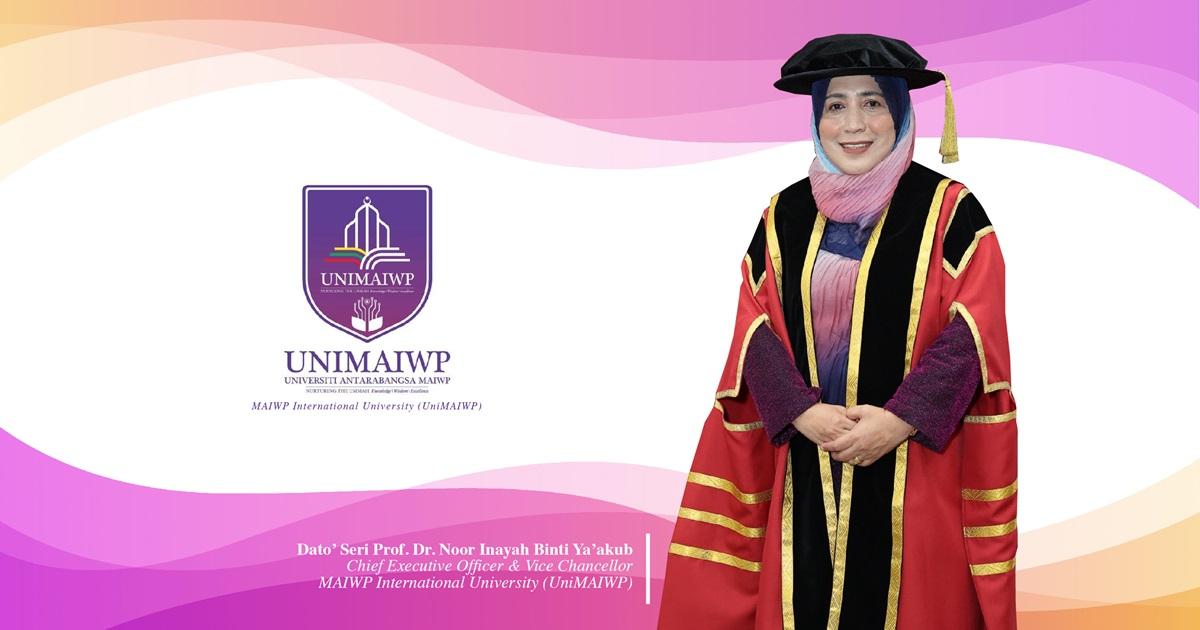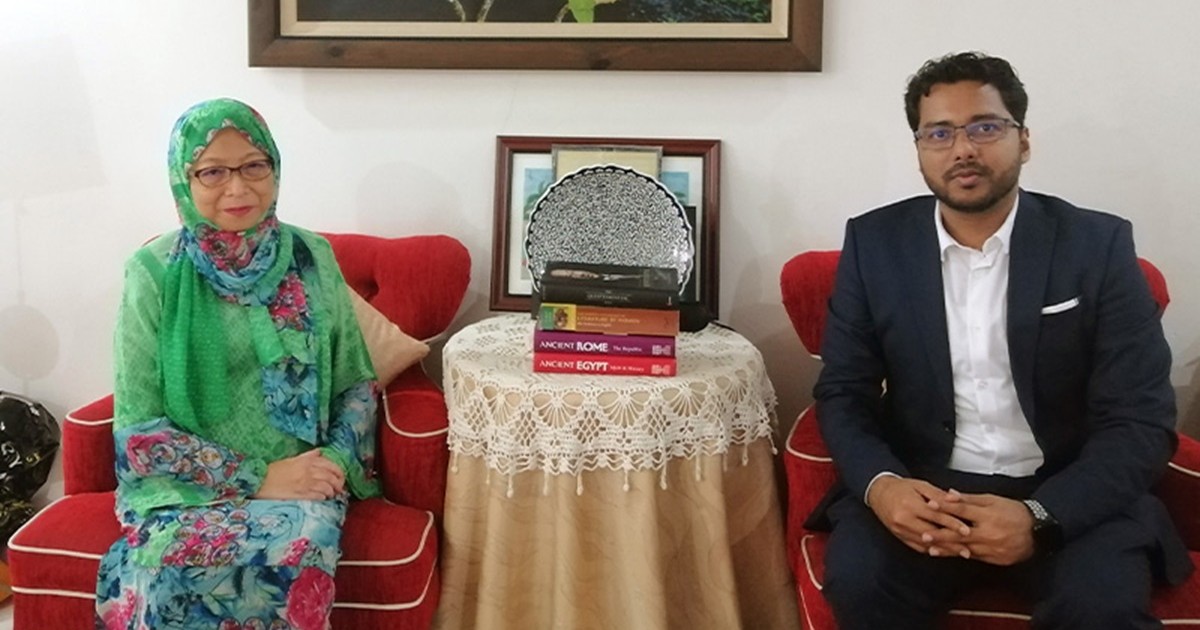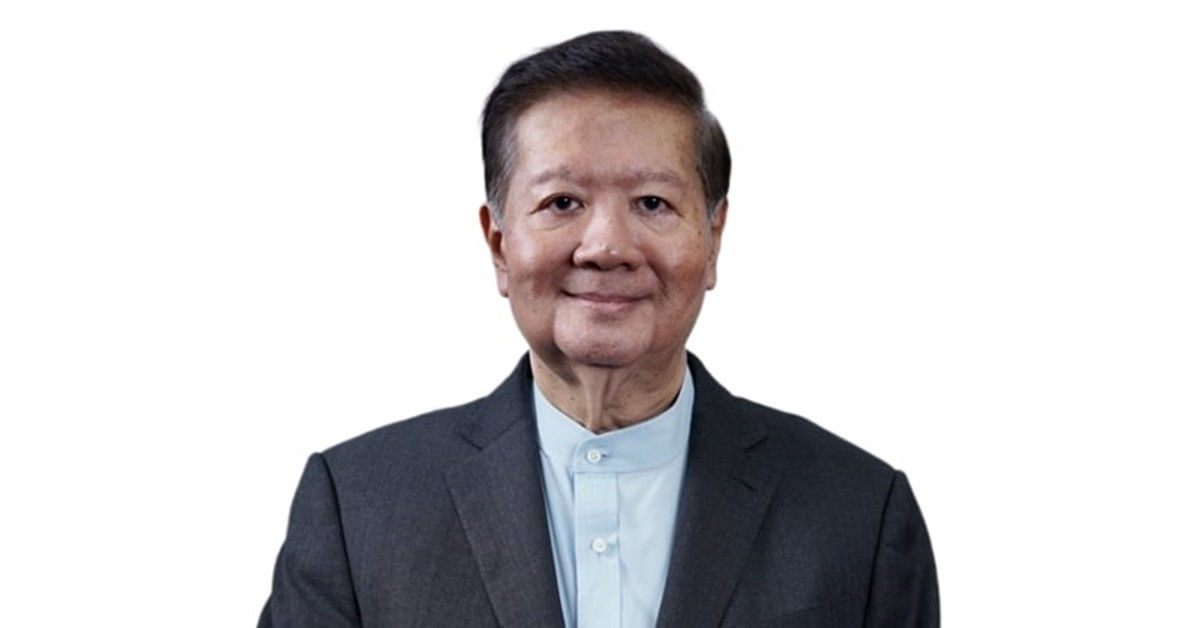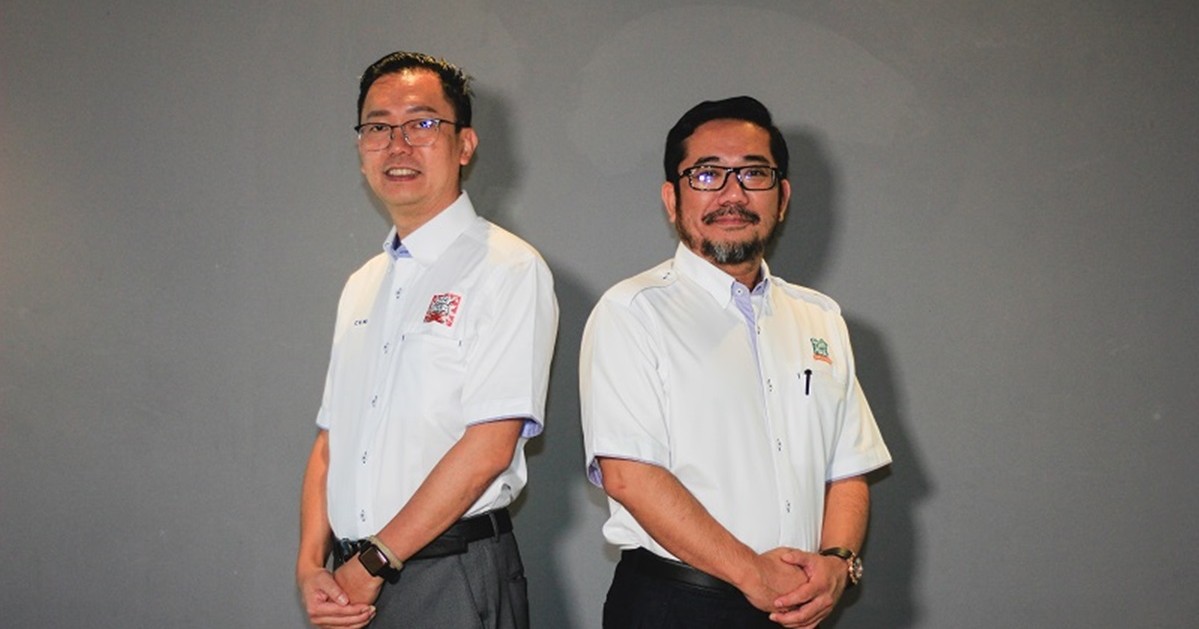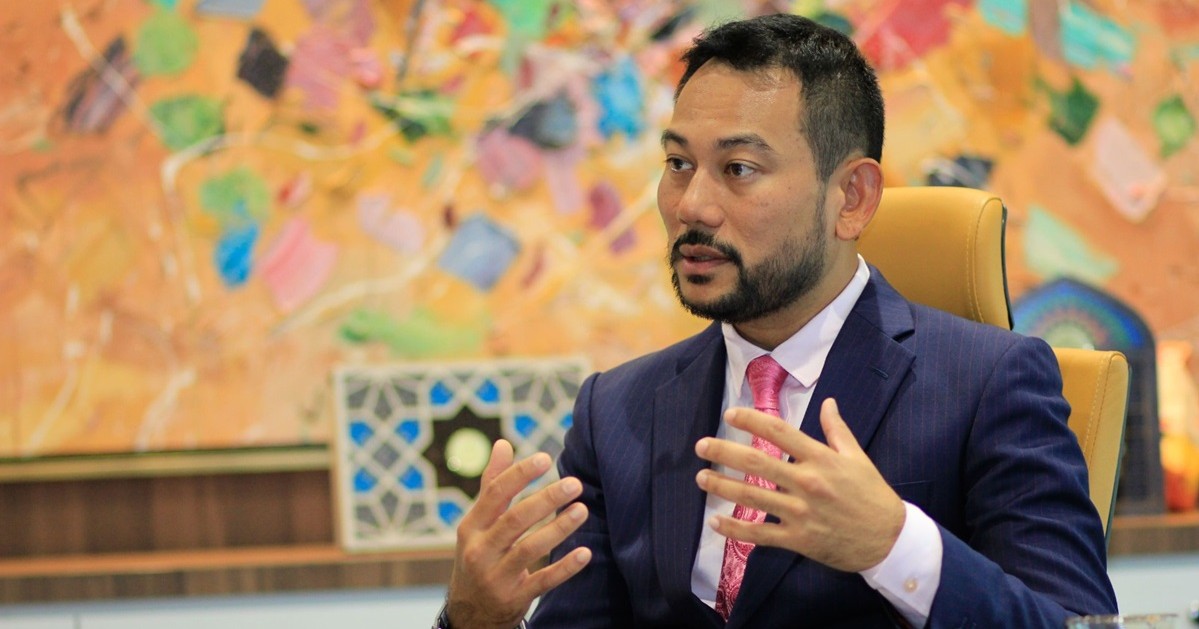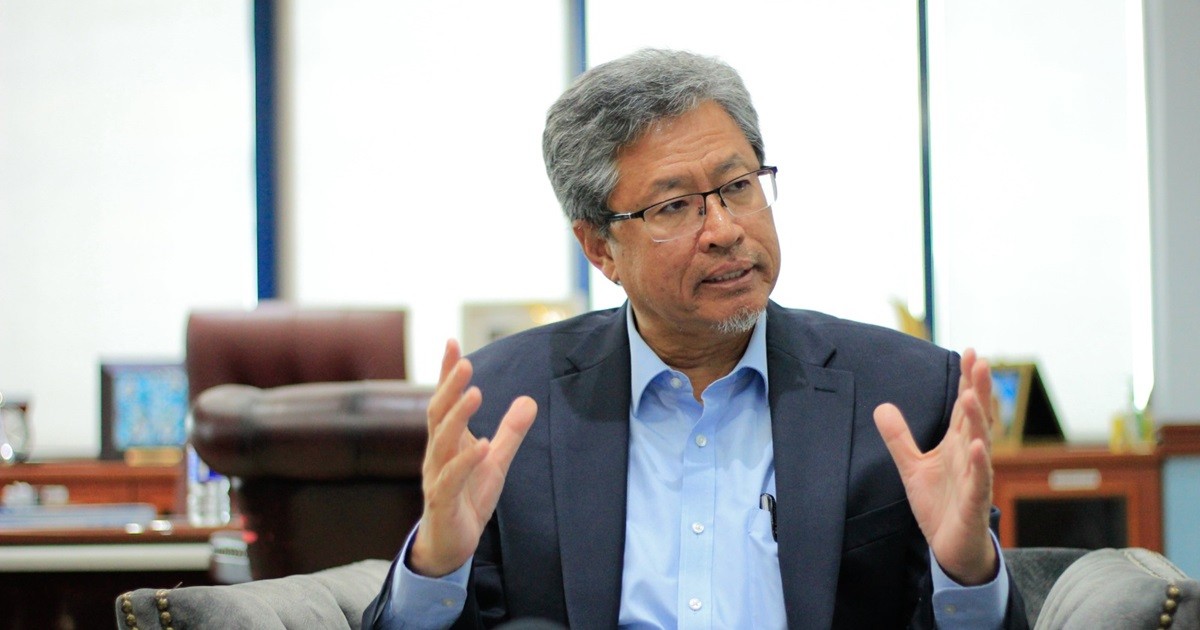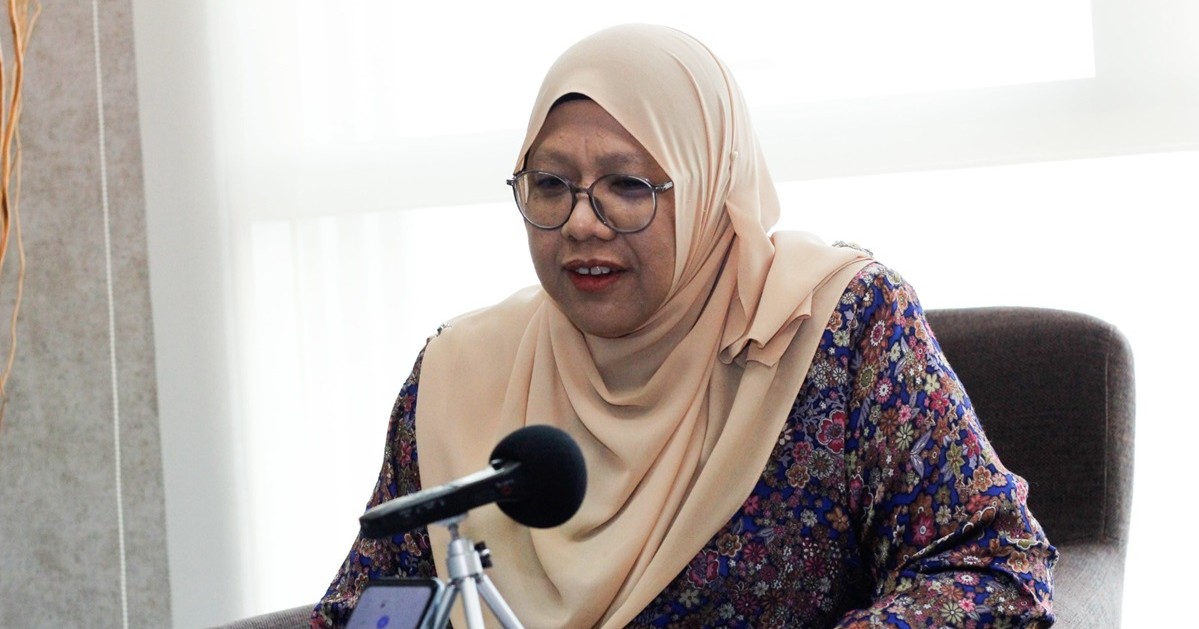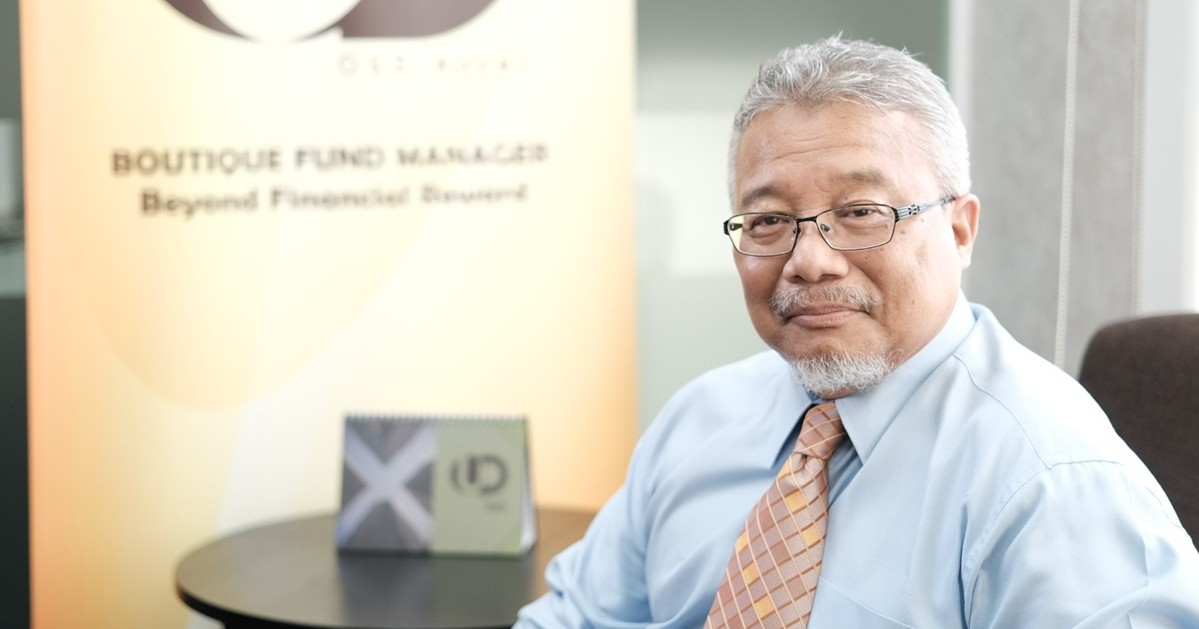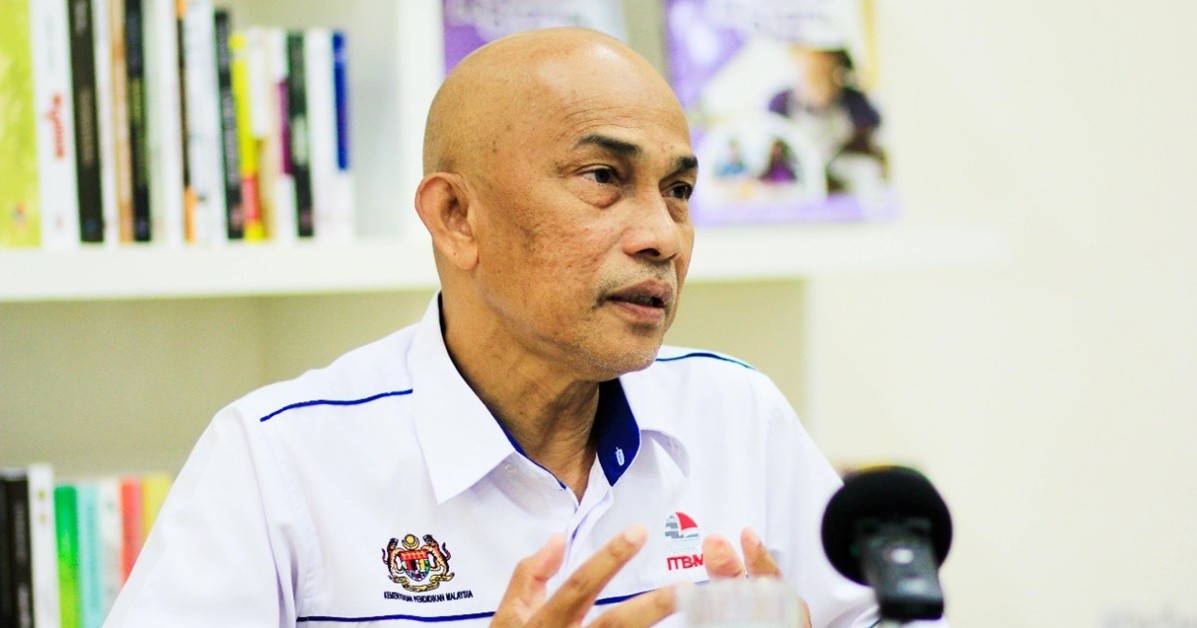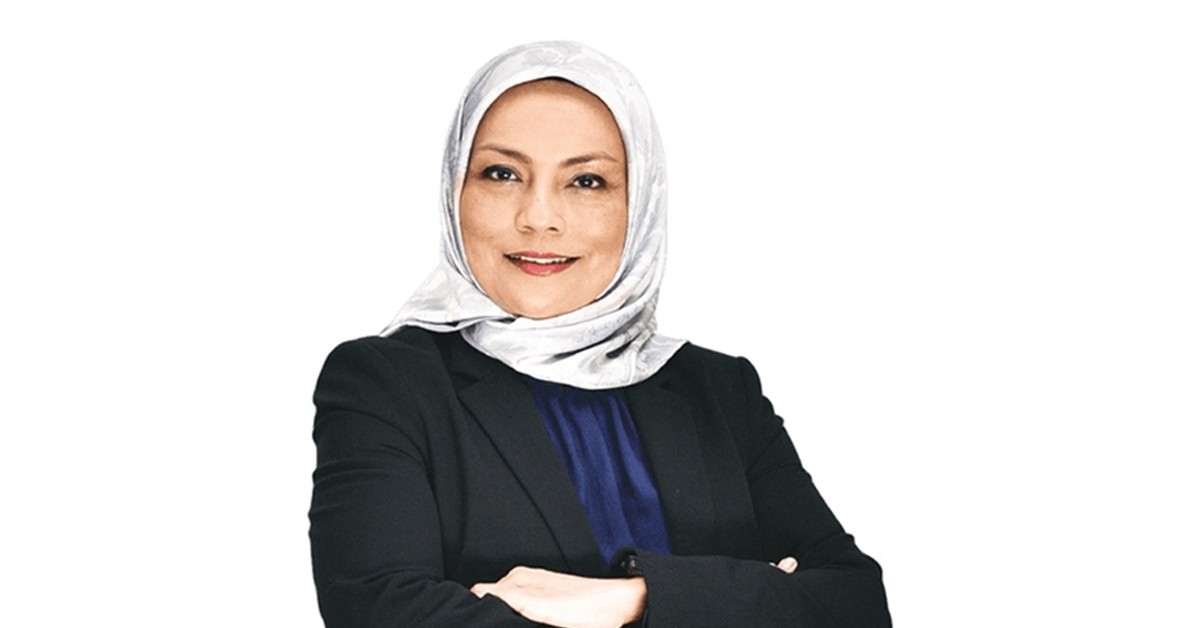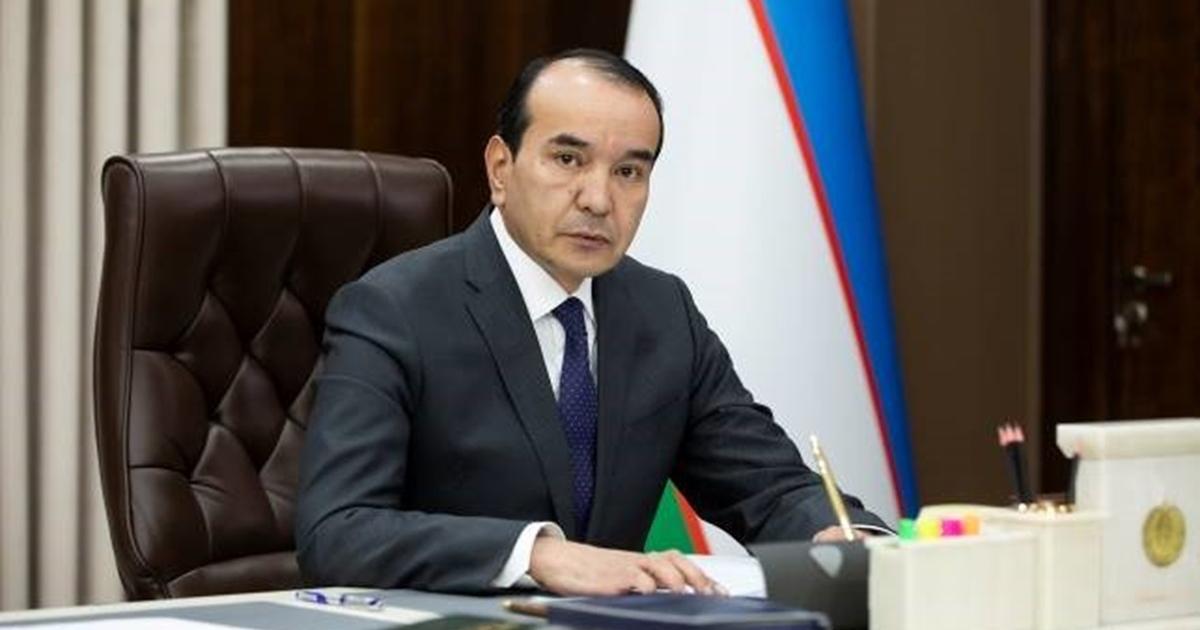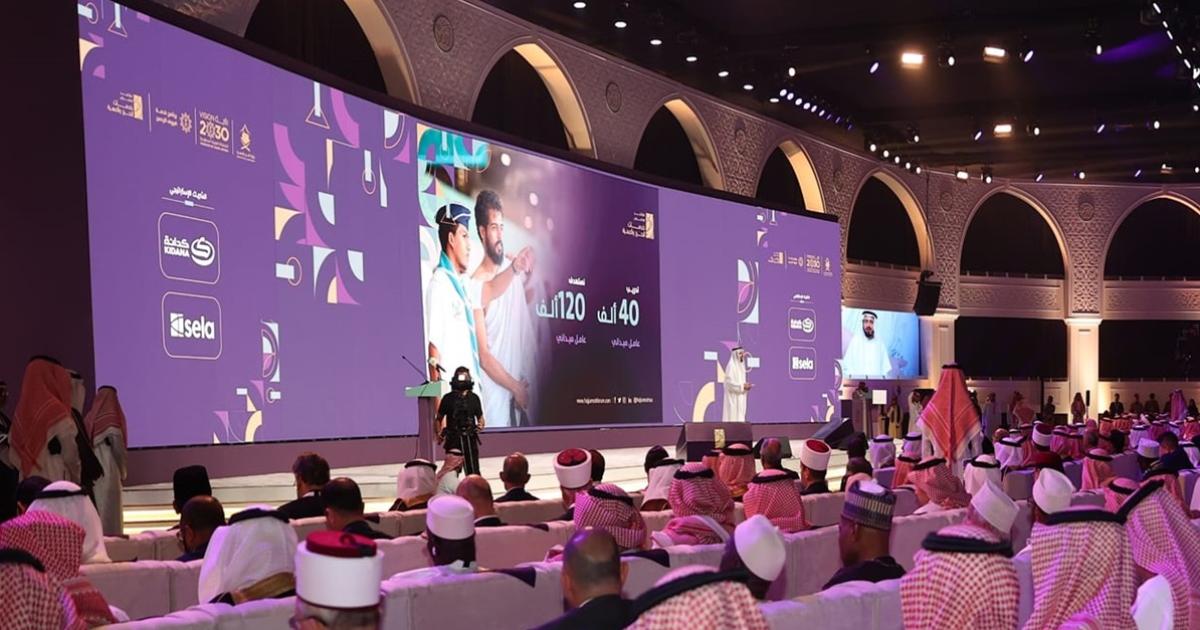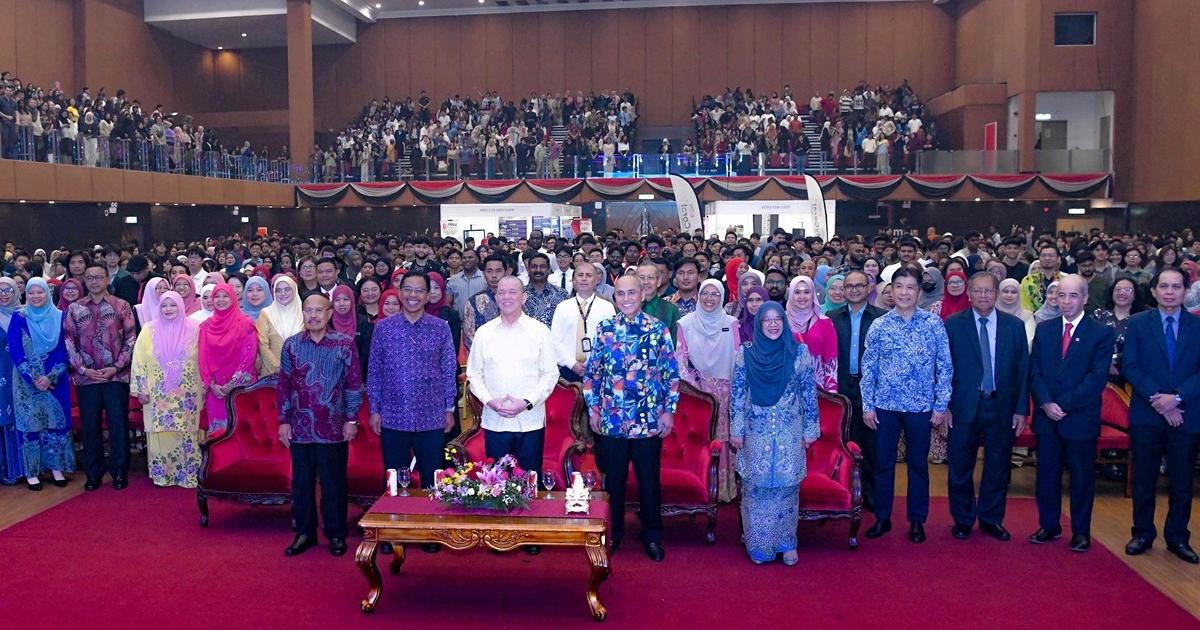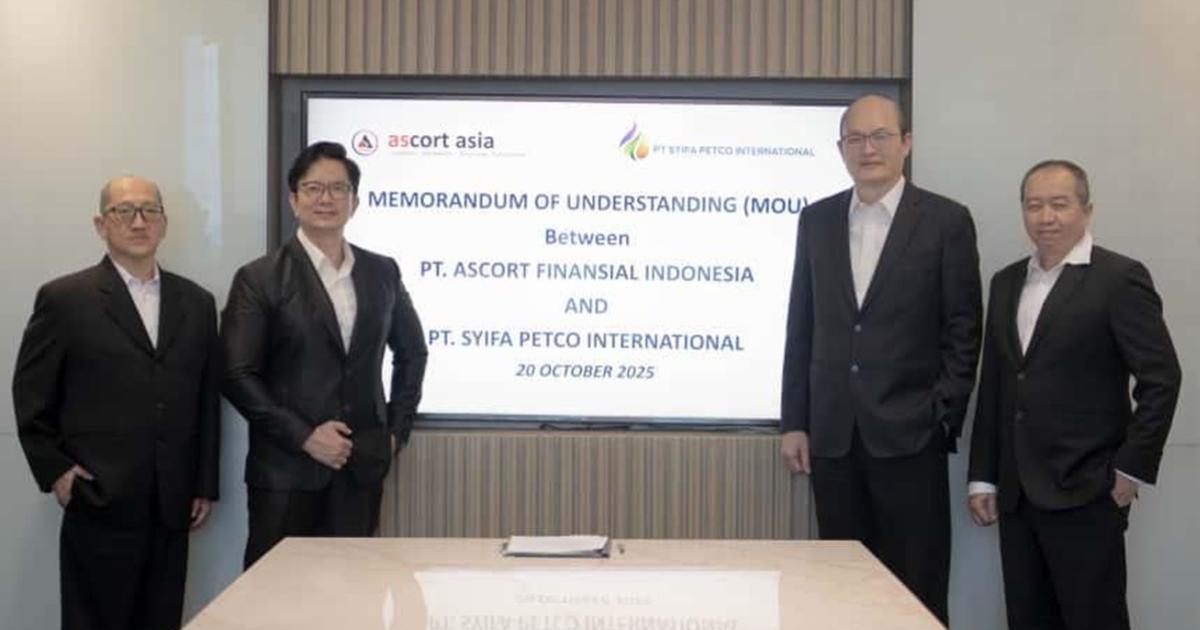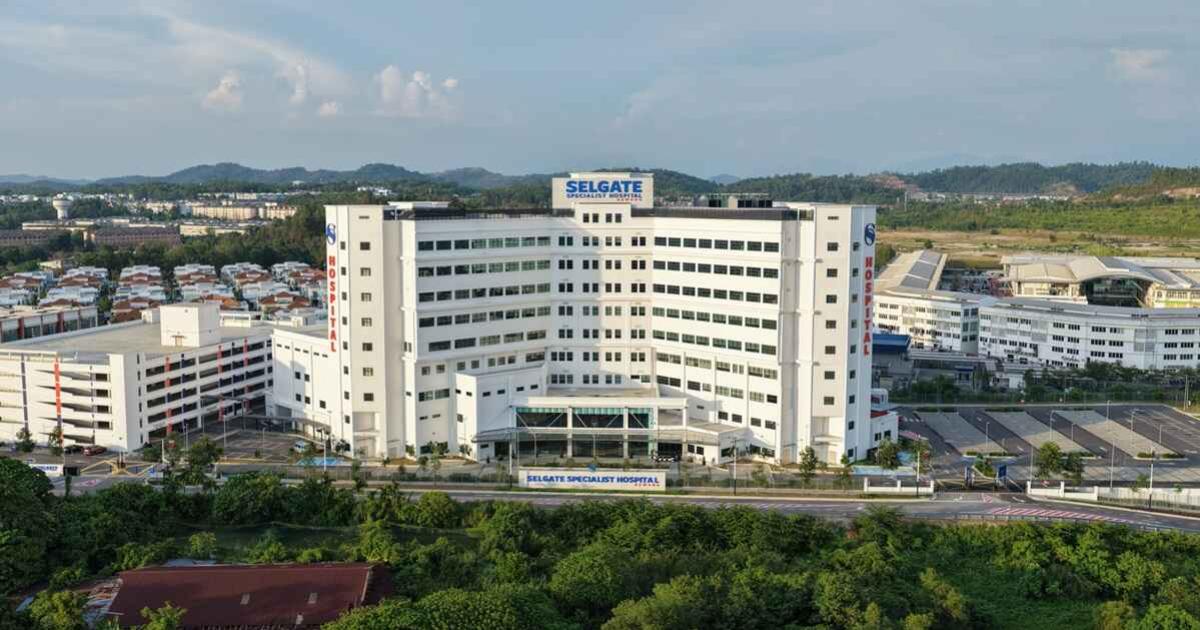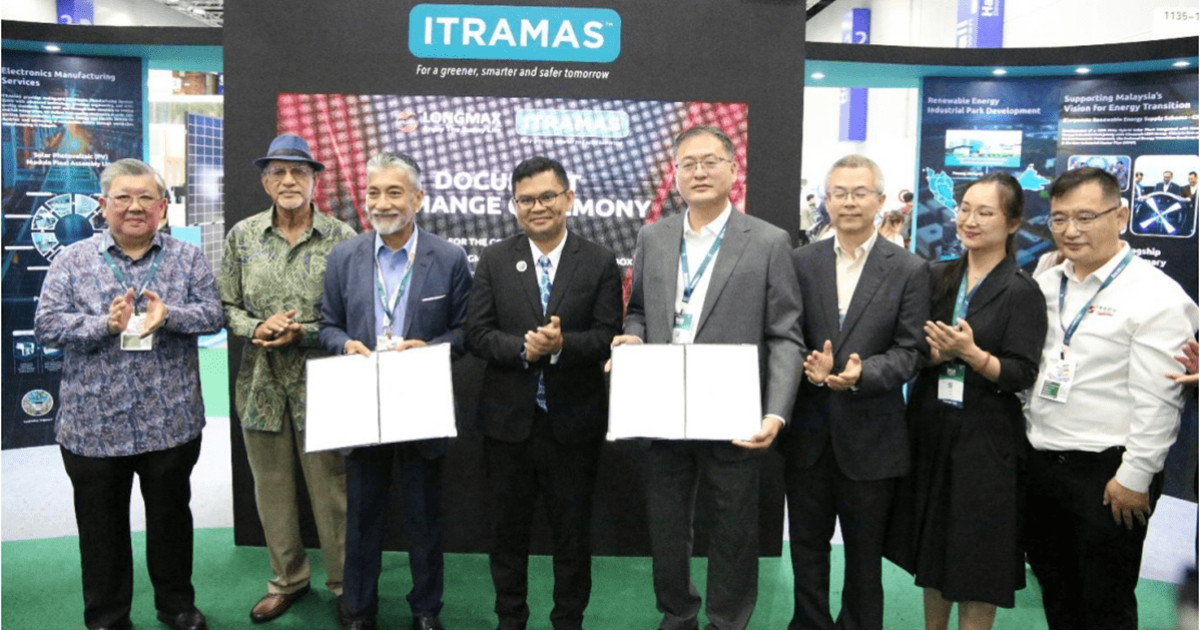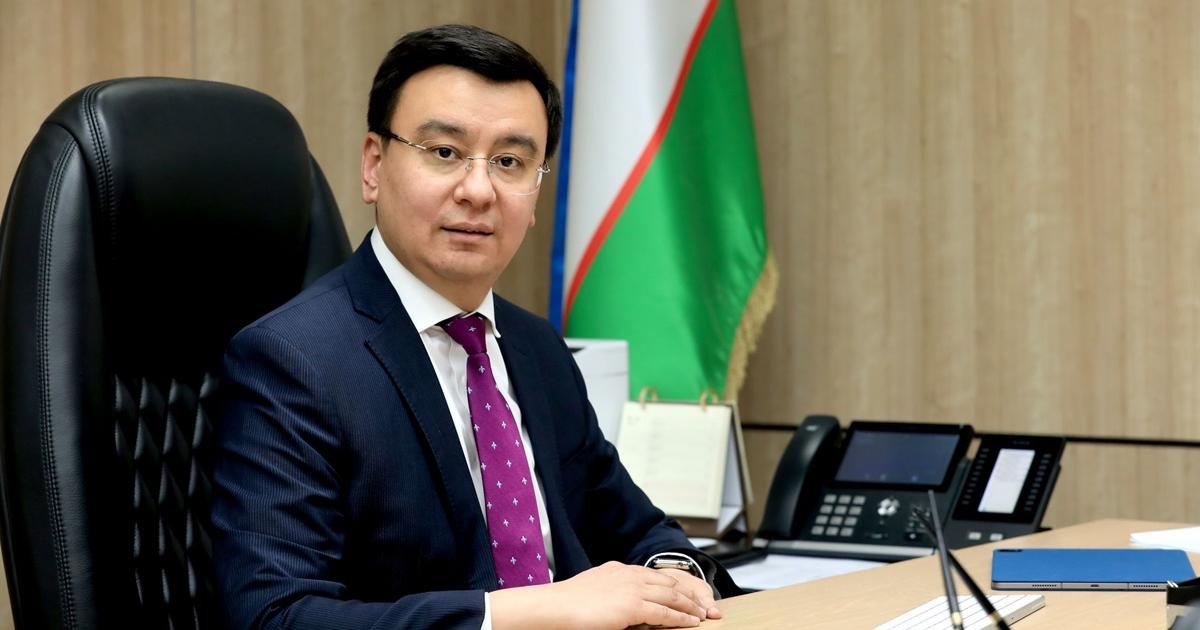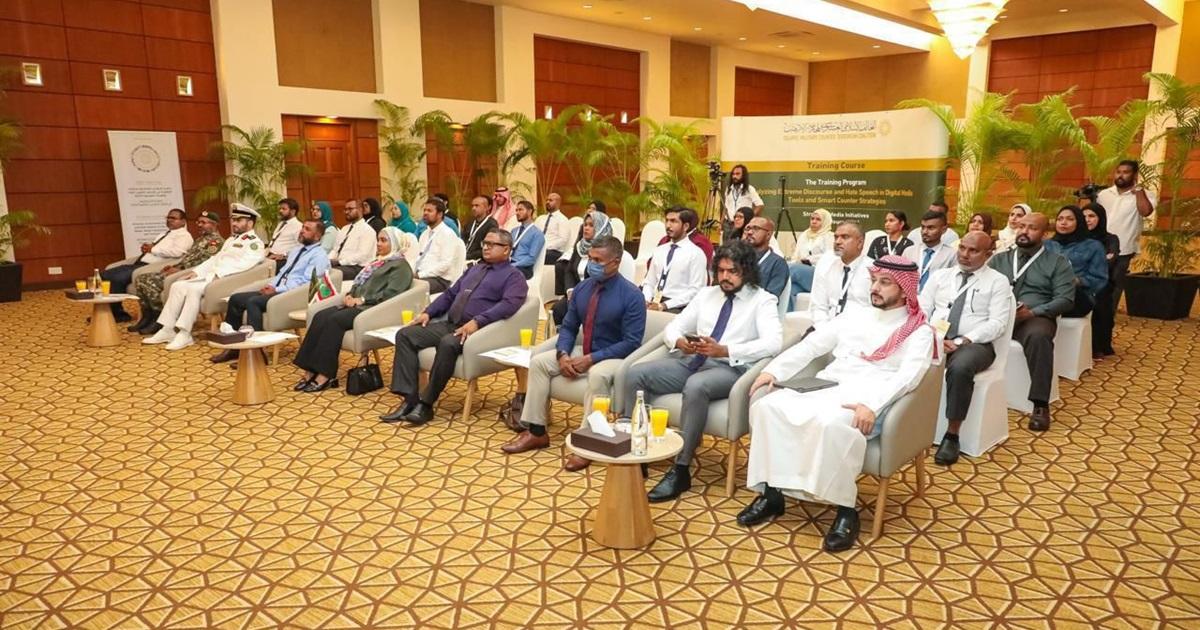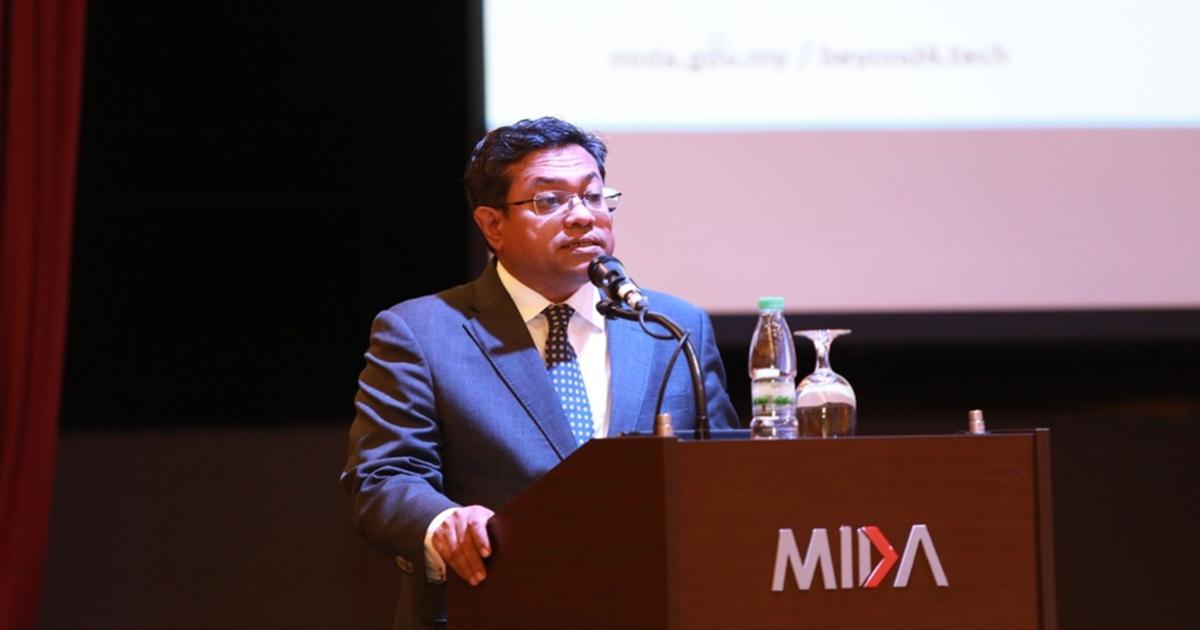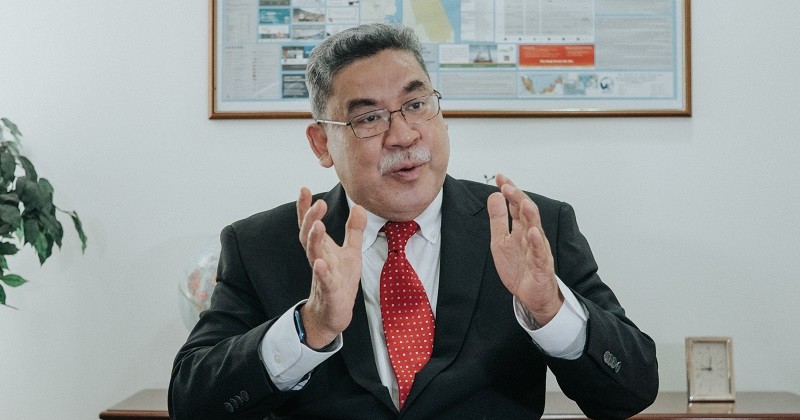
An Interview With Mr Che Mohd Nazin Endut Executive Director of Next Petroleum Sdn Bhd
As the Executive Director of Next Petroleum with more than 30 years in the oil and gas industry, Che Mohd Nazin Endut stands at the helm of a dynamic and forward-thinking company. Established in April 1995, Next Petroleum Sdn Bhd is major player of pipe, flanges, fittings, all type of valves, barred tees, pipe bends and special products for any application, particularly to upstream operation. With his wealth of experience spanning decades in the oil and gas industry, Che Mohd Nazin has played a pivotal role in steering Next Petroleum through the complexities of a rapidly evolving global landscape. Focused on achieving results, he led sales teams to grow client lists and increase annual turnover through smart business planning and sales efforts. He implemented operational strategies that led to business growth, higher sales, and increased client satisfaction. Improved skillsbuilt relationships with quality manufacturers, and successfully introduced new products to clients.

His leadership style, marked by a keen focus on innovation, sustainability, and strategic growth, has not only solidified Next Petroleum’s position as a key player in the industry but has also earned him recognition as a visionary leader. OIC Today has the pleasure to delve into Che Mohd Nazin’s journey, the challenges he has overcome, and the insights he offers into the future of the energy sector.
Can you provide an overview of Next Petroleum’s core business activities and areas of specialization? What inspired you to start Next Petroleum, and how has the company evolved since its inception?
My late business partner Che Abdul Ghani bin Awang first established this company in 1995 and I joined him while he served as the CEO until his unfortunate passing in 2015. As the Executive Director, I took on the responsibility of ensuring the company’s continuity until today. There’s also a possibility that I may contemplate a shift to the role of Chief Executive Officer next year.
We were both mechanical engineers by profession and were considering becoming an entrepreneur. They say that in doing so, one must begin with a business in a field that you are familiar with. Fortunately, we had the expertise and connections and with those resources, we were ready to embark on a venture and were confident that we can actively participate and make meaningful contributions across various industries.
When we initially founded the company, it was grounded in our cumulative and extensive experience within the oil and gas sector. Drawing from this experience, we envisioned bringing substantial value to various industries through the delivery of high-quality services and products. Our core operation revolves around buying and selling. It’s not just a transaction; it encompasses various activities online, including fabrication, construction, drilling, and supply. In navigating this diverse landscape, we chose to focus on the supply aspect, confident that our experience and international connections could add significant value to the industry. This conviction led to the establishment of our petroleum venture and furthermore this belief is encapsulated in our pricing model, reflecting our commitment to providing excellent service and supplying quality products across diverse industries. Our focus extends to specialized areas, particularly in mechanical piping, aligning with my expertise. The mechanical items listed in our corporate profile constitute the core of our product offerings.
Now, when you ask where we make our purchases, it’s a testament to our extensive network. We specialize in metric items, and our sourcing spans both domestic and international markets. We procure items definitively, reaching into regions like South Asia, Vietnam, Singapore, China, Indonesia, Korea, and India. Everything, from robust structural components to fishing gear, is sourced both from overseas and local suppliers.
Essentially, our strategy goes beyond mere transactions; it’s about building a comprehensive and influential network that caters to the needs of both our international and domestic clients, ensuring effectiveness and impact in our operations.
As mentioned above our core business involves buying and selling, and it’s more than just a transaction—it encompasses various activities online, such as fabrication, construction, drilling, and supply. We specifically chose to focus on the supply side because we believe we can contribute added value to these processes. Drawing on my experience and international connections, along with a solid domestic client base, I felt confident that establishing Next Petroleum was a worthwhile endeavour. For instance, when it comes to suppliers, roughly 50% of our purchases are made internationally, while the other 50% are sourced locally. Currently, we have around 40 clients, all of whom share a preference for our offerings. Over 100 companies registered within a week when we initially focused on the oil and gas sector, aligning with our mission and pattern development. Consequently, these companies, including Petronas, have listed orders with us.
Can you share some key milestones and achievements of Next Petroleum since its inception and under your leadership?
The key factor that has allowed our small team to thrive is our commitment to keeping them well-prepared and avoiding surprises. We prioritize ensuring that our staff is ready and willing to serve, fostering a sense of loyalty. For instance, our sales manager has been with us for over 20 years, reflecting the loyalty that characterizes our company. We actively provide opportunities for our staff to continue their dedicated service to the company, which is a cornerstone of our success and an achievement.
Moreover, as a core service provider, we collaborate closely with industry giants like PETRONAS and their subsidiaries, multinational companies such as Shell and Exxon Mobil and many other Malaysian public listed companies. Our technical expertise has positioned us as a sought-after partner. This achievement is underscored by our inclusion in Xero’s noteworthy list, a recognition dating back to 1995, showcasing our sustained excellence in the industry. Again another milestone achievement.
Maintaining a lasting foothold in the oil and gas sector for nearly three decades is no small achievement, given the industry’s inherent volatility and challenges. While Next Petroleum may be a relatively small company, we compensate for our size with a wealth of experience. We consistently uphold a vision that extends over the long term, prioritizing sustainable growth rather than seeking short-term gains. This approach is crucial for not only surviving but thriving in the dynamic and unpredictable landscape of our industry
Furthermore, we find satisfaction in our engagement within the oil and gas sector, particularly in two specific project categories. The initial one, known as Greenfield, entails the construction of entirely new facilities. The second, termed Brownfield, concentrates on improving and modifying existing structures to boost oil or gas production. In these endeavours, our pivotal role involves the oversight of material supply, a critical component for their success as per contractual agreements.
Could you discuss any recent innovations, projects, or partnerships that Next Petroleum has been involved in?
Aligning with the focus on performance and inspiration, we’re delving into new technology—hydrogen, specifically a cleaner and greener approach. The introduction of terms like carbon capture storage, where everything is placed underground, aligns seamlessly with our vision. We’ve directed our manufacturing efforts to create innovative products that can contribute to this new wave, collaborating with industry leaders like PETRONAS who have been a significant source of inspiration for us, particularly in their dedication to hydrogen technologies, such as the Hydrogen SDK.
Regarding partnerships, we’ve actively pursued collaborations, though they are in the developmental stage. Before the onset of COVID-19, our objective was to establish partnerships, including discussions with Korean counterparts to set up manufacturing facilities in Malaysia. This initiative aimed at manufacturing cutting-edge products for the oil and gas sector demonstrates our commitment to international collaboration and progress.
How has Next Petroleum adapted and innovated to market changes in the energy and petroleum industry, such as environmental concerns and technology advancements?
Currently, as a traded company, our visibility in certain projects may be limited. However, as projects progress, contractors often reach out to us if there’s a need for our products or services. We are flexible and ready to adapt to changes, exemplified by our past efforts to ensure that our products meet certification standards from reputable international bodies, safeguarding the environment and complying with regulations.
Ensuring compliance is a top priority for us, and we actively collaborate with NGOs like INSOURCE and safety organizations to provide regular training sessions. These cover various aspects, especially focusing on chemical handling, material safety, and hearing protection, aligning with health and safety requirements.
In terms of technological advancements, we’ve embraced new technologies to enhance our operations. For instance, we’ve introduced a platform, showcasing our commitment to staying at the forefront of industry trends. Looking ahead, we remain open to further advancements that will attract attention in the market.
Given the unprecedented challenges posed by the COVID-19 pandemic, we are interested in learning more about how Next Petroleum navigated through these times. Could you share insights into the strategies and initiatives implemented by Next Petroleum to adapt to the pandemic, ensuring the continuity of operations, and how these measures have positioned the company for the future?
We consider ourselves fortunate as the oil and gas sector, where we operate, has demonstrated resilience during the challenges posed by the COVID-19 pandemic. Although physical presence in the office was restricted, we were granted permits by the police to travel, particularly to essential locations like the coordination centre for services. This strategic arrangement allowed us to maintain our operations smoothly.
In terms of stock availability, our proactive measures, including collaboration with VC and securing dedicated logistics for overseas shipments, ensured that we had ample supplies. While there were occasional challenges with stock levels, especially during larger orders, our ability to leverage dedicated logistics facilitated the delivery process, aligning with the initiatives we implemented during the pandemic.
As for our office staff, they seamlessly transitioned to remote work, conducting meetings through platforms like Zoom and Teams. Despite the overall downturn in offshore activities, attributed to quarantine requirements, our business maintained a semblance of normalcy. However, there was a drop in income, prompting us to focus on diversifying our product range and emphasizing the importance of stock items to navigate through the economic challenges posed by the pandemic.
One significant factor that contributed to our learning curve was the shift aimed to broaden our knowledge base. Before the onset of the pandemic, we had regular team meetings to anticipate and address potential challenges. However, when the COVID-19 pandemic emerged, we encountered difficulties, particularly in accessing our overseas manufacturing facilities. This hurdle led to limitations in stock availability, prompting concerns about the timely delivery of products. Our key manufacturing hub in Italy for instance was affected. To overcome this, we redirected our production from Italy to China, leveraging the latter’s quicker turnaround time. Despite initial scepticism from clients about Chinese production, we successfully assured them of maintaining quality standards by closely monitoring the manufacturing process.
What challenges have you encountered during your leadership, and how did you overcome them?
Reflecting on broader challenges throughout our 25-year history, the volatile fluctuations in oil prices have been a recurring obstacle. The oil and gas industry are greatly influenced by changes in oil prices, creating difficulties in project planning and execution due to the unpredictable shifts in profit margins and demand for products and services. Furthermore, the drop in oil prices to $40 presented a significant challenge, impacting our business operations.
However, our resilience in navigating these fluctuations and adapting to market conditions has been key to overcoming such challenges and sustaining our business over the years. To navigate the impact of price fluctuations, we concentrated on managing costs, we broadened our range of products and services, and sustained a flexible business model. We also employed financial hedging strategies to effectively handle the risks associated with price fluctuations
The COVID-19 pandemic significantly influenced the oil and gas industry, causing disruptions in operations and revenues due to lockdowns, decreased demand, and supply chain interruptions. Although we strived to maintain business as usual, the novel circumstances demanded a departure from our usual full-swing operations. We had to swiftly adjust to new safety measures, implement remote work setups, and respond to shifts in demand. Some diversified their offerings by providing essential products like personal protective equipment (PPE) or medical supplies. Many companies also reevaluated their supply chain strategies to bolster resilience.
Addressing the challenge of oil price volatility, we engaged in discussions with our manufacturers, negotiating prices and commercial terms. We strategically adjusted our commercial offerings, sometimes sacrificing profit margins to ensure the continued provision of our services. This involved providing added value, such as extended warranties and factory visits overseas, enhancing the overall appeal of our products.
In the oil and gas industry, dealing with various currencies is common when acquiring equipment and materials from different regions like China, Europe, Southeast Asia, Korea, and America. The fluctuation of currencies can influence the cost of supplies and ultimately affect profitability. We tackled the currency fluctuations by implementing diverse strategies, like hedging against currency risks, negotiating favourable terms with suppliers, and broadening our supplier base to reduce vulnerability to a single currency.
Apart from the market dynamics and oil price fluctuations, we also faced challenges with competitors who occasionally sought to undercut our business. Additionally, bad debts have been a considerable concern for us, making it challenging to recover owed funds. This issue is particularly pronounced with our contractors, adding complexity to our financial processes. To clarify, in our business scenario, consider the example of manufacturing valves. Our contractors, who are responsible for creating structures, encounter difficulties in payment, making it challenging for us to collect funds. Despite these hurdles, our commitment to adaptability, strategic negotiations, and value-added services allowed us to navigate through these challenges successfully.
In the context of offshore structures, these items, such as fittings and strainers, are crucial components. Occasionally, oversights occur, as in the instance mentioned where a vital item was forgotten to be included in a shipment to the South China Sea. Despite such challenges, the process of manufacturing these structures is a fascinating one, involving various tests and standards, often with requirements that vary depending on the region.
How does Next Petroleum prioritize sustainability and corporate responsibility in its operations?
Addressing the question of sustainability and corporate responsibility, our company places a significant emphasis on these aspects in our operations. We actively engage in initiatives that contribute to sustainability, ensuring that our manufacturing processes adhere to environmentally friendly practices. We also enforce environmental and social criteria in supply chain management, involving the selection of suppliers who are environmentally friendly, ethical, transparent, and share common goals
Our logistics are streamlined where we enhance the efficiency of transportation and distribution networks to minimize carbon footprints. This involves practices such as modal shifts, optimizing routes, implementing anti-idling policies for vehicles, and more.
Treating Workers Right is a priority, making sure that everyone is treated well and protected at our workplaces and at the places where we get our supplies. We have strict rules against making children or anyone work against their will, and we support people being a part of groups if they want.
Helping Communities Grow and giving back to the places where we work is another area we practice regularly. We do this by supporting projects that help the community, volunteering, partnering with others, and making social investments. This commitment extends to corporate responsibility, where we strive to give back to the community through various programs and activities. Our goal is to operate in a manner that not only supports our business goals but also aligns with broader ethical and responsible business practices.
Can you discuss your company’s growth strategies and plans for expansion, both locally and internationally? Can you share any upcoming projects or initiatives that Next Petroleum is excited about?
We want to continue to foster connections with local suppliers and service providers to secure the supply of crude oil and natural gas. We also want to establish strong relationships with key decisionmakers and establish local trading entities to broaden our reach, connecting with more suppliers and buyers, and cultivating additional assets and relationships.
Investing in local infrastructure, including storage facilities, advanced logistics, and machinery, to enhance our capacity for handling larger volumes and entering new markets. Regarding expansion plans, initially, our focus is on the Asia Pacific region. We plan to Identify rapidly expanding markets such as China, India, and Southeast Asia, where there is a surge in energy imports. We do believe in the power of collaboration, especially when expanding into new territories. For instance, in Myanmar, a company invited us to supply, and we recognized the strength that comes with partnerships. In Terengganu, we are actively engaged in manufacturing and testing with a reliable partner to better serve the industry. We are also interested in forging connections with national oil companies and refiners in these regions. Just recently, interestingly, our supplier in Rotterdam, who also operates in Buenos Aires, Argentina, expressed interest in bringing us there. While initially sceptical, the recognition is encouraging, and we are exploring the potential.
We also plan to recruit local staff or establish offices in strategic markets to build expertise and relationships on the ground. Prioritize understanding local regulations, culture, and business practices.
Moving forward, expanding our financial resources and operational capacity for managing large, intricate transactions is on the cards. Collaboration with investment banks and commodity traders may be necessary.
How do you see the future of the energy industry evolving, and how is Next Petroleum positioned to meet those changes? How do you see the company’s role in the regional or global energy landscape, and what impact do you aim to make in the industry?
As for the future of the energy industry, it’s indeed growing. Our company is prepared to adapt and grow along with it. We acknowledge the significance of staying at the forefront of industry advancements, and our commitment to quality and collaboration positions us well in the global energy landscape. The recent finalization of certain initiatives is a testament to our readiness and capability to navigate the evolving energy sector.
How do you maintain a strong company culture and engage your employees to support the company’s mission and vision? In what ways do you foster innovation and encourage your team to think creatively in the oil and gas sector?
Our workplace is like a family to everyone. Given the predominantly male-dominated nature of the oil and gas industry, nurturing a familial work culture becomes crucial. This helps establish a feeling of belonging, safety, and support, particularly as a significant portion of our staff is comprised of women. When the work environment is free from discrimination and harassment, employees, especially women, are more likely to stay with organizations that prioritize their well-being and safety. This explains why many of our female staff members have remained dedicated to Next Petroleum for over a decade.
Our approach is focused on employee retention, acknowledging that a stable workforce contributes to uninterrupted business operations. As employers, we emphasize leadership and maintain a policy of zero tolerance for delays or excuses. We ensure thorough compliance with client requirements and specifications. Currently, we have a dedicated team of 15 staff members who contribute to the success of our projects. Delegation of authority is a key aspect of our management style, empowering our team members to take charge of their responsibilities. This explains why many of our female staff members have remained dedicated to Next Petroleum for over a decade.
We also prioritize the well-being of our personnel, both personally and professionally. Recognition aligns with market requirements, and we offer bonuses and incentives in addition to performance-based rewards. Learning and development are essential, providing our team with opportunities to enhance their skills. We consistently encourage our team’s growth and offer them the chance to travel, enabling them to visit places like Korea, China, and Europe.
What advice would you give to aspiring entrepreneurs and business leaders based on your experience?
Starting a company is just the beginning; the real challenge is to keep it going. I’ve been fortunate to work with big companies from different countries, and this has given me a lot of overseas clients. Having connections with international partners is vital. If you have good connections, it can make a big difference in the success of your business. When someone wants to start a business, it’s important for them to have the necessary knowledge and skills. They don’t have to be an engineer, but they should understand what they’re doing.
Making connections and having a wide network is important and, in the oil, and gas industry, relationships are crucial, and having contacts at different companies means you get more information. It’s like a chain of connections with vendors, forwarders, suppliers, and manufacturers. Since the industry is close-knit and can change quickly, people often move between companies. The person you work with today might be at a different company tomorrow. So, it’s important to stay in touch and make the most of these networks.
Having experience in the oil and gas industry, is a must. It’s not just about knowing how to operate; it includes various activities like marketing, engineering, supply, construction, and training. So, when I talk about knowledge, I mean understanding the oil and gas industry well. You need to know the rules and requirements, and it’s helpful to have experience in developing and maintaining safety standards.
Understanding digital aspects like marketing is crucial for any business nowadays. While we do have younger team members who are knowledgeable about digital, we’re not fully utilizing its potential yet. In the future, we plan to explore digital platforms more.
For example, we have stock items that meet international standards, but the awareness about them is low. People may not realize that our products are approved by bodies in the US and meet specifications used in various countries like Thailand and Nigeria. So, one of our challenges is to educate people about our products and their quality
Lastly, what do you believe sets Next Petroleum apart as a company that others should admire or look up to?
Our competitive advantage in this market is providing ex-stock items especially on duplex and stainless steel materials. Maintaining an ex-stock program in our warehouse in Kota Damansara is a strategic approach to meet the urgent requirements of our clients which allows us to have frequently used products readily available for immediate delivery.
The ex-stock items that we mostly keep are DBB valves, ball valves, gate valves, check valves, one-piece body stainless steel (SS) and duplex stainless steel (DSS). Also, SS and DSS flanges and fittings. With these ex-stocks, we have supported urgent Sumandak Project by Petronas Carigali, Pegaga Project by Sapura / Mubadala Petroleum, Dulang and Angsi Project by Carimin Engineering / Petronas Carigali, Bertam Project by PBJV / IPC and Tapis Project by Perunding Ranhill Worley (PRW) / Exxon Mobil.
What also sets Next Petroleum apart, I believe our loyalty and commitment make a significant difference. Our team is dedicated, and we value long-term relationships. While we might not be the biggest company, our focus on quality, knowledge, and reliability is what makes us stand out. Other companies could admire our commitment to excellence and the strong relationships we’ve built over the years.
Furthermore, I believe it is my leadership style that has contributed to a strong team dynamic, with a sense of loyalty and commitment among my staff. We want to be known as a reliable and approachable company.
- Business News 100
- Country News 16
- Feature News 30
- International News 151
- Interview News 35
- National News 18





